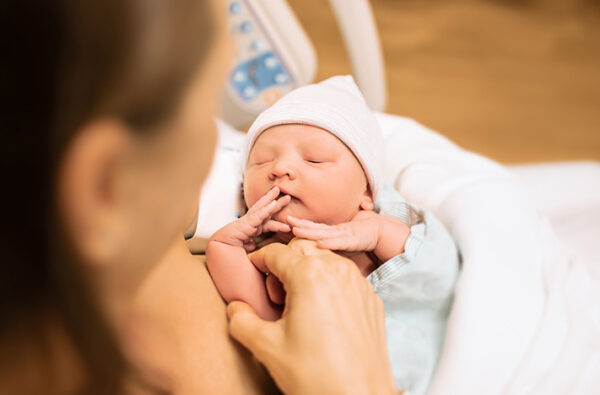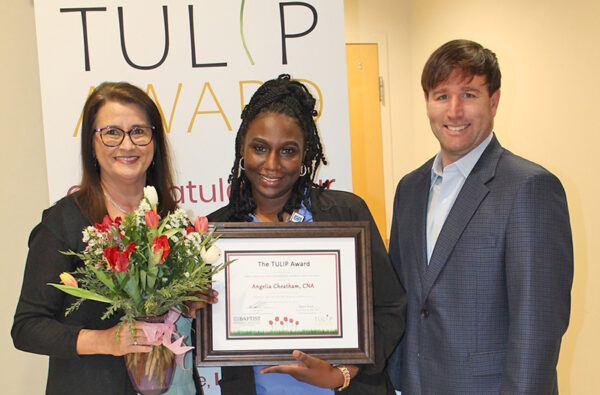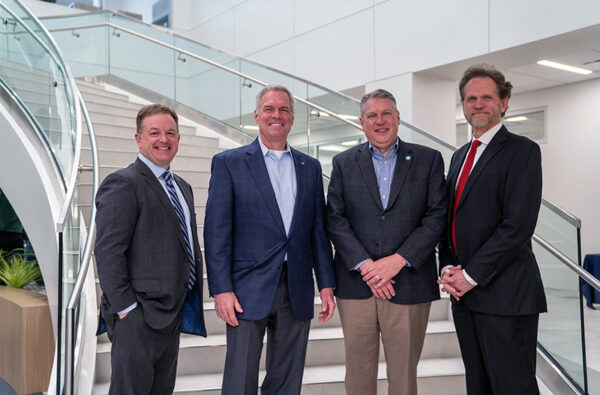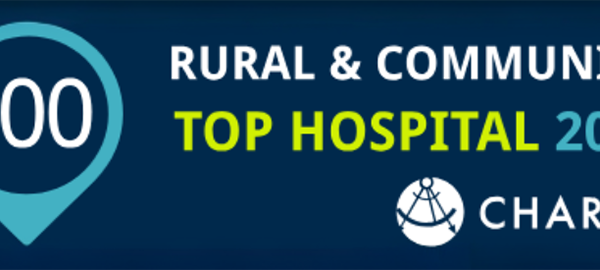Memphis community members are still grieving recent losses due to violence. The grief is even more amplified among the students, teachers and staff at St. Mary’s Episcopal School, where Eliza Fletcher worked as a teacher.
In the aftermath of Eliza’s kidnapping and murder, and other recent community tragedies, the Baptist Centers for Good Grief is there to help for as long as needed. Angela Hamblen-Kelly, administrator for Baptist Centers for Good Grief, talked with us about how they’re assisting the community during this difficult time.
How does the Centers for Good Grief assist in the aftermath of community tragedies?
I think one of the biggest gifts the grief center gives is that we are here for families, schools, churches and communities for the long run.
When a death occurs, there can be a lot of attention in those first days or weeks. We hear from many of our families that everybody else has gone back to their lives and routines, but they are still dealing with grief. Grief needs long-term support.
We provide individual services based on each person’s needs, so some people may come a couple of times, and others may come for a while, especially if they’re dealing with a traumatic death and they’re going to be involved with the legal system. All our services are provided free of charge.
Could you tell us more about how Baptist Centers for Good Grief is helping the students, teachers and staff at St. Mary’s Episcopal School?
We have provided support to St. Mary’s, Christ United Methodist, Christian Psychological Counseling Center and Idlewild Presbyterian Church in the aftermath of Eliza’s death.
We’ve been working with St. Mary’s for more than a year because they’ve had multiple losses at their school. We met with students individually and in groups, and we had a faculty grief education supportive session and multiple parent sessions, too.
St. Mary’s has a fabulous counseling department, and part of our role since Eliza’s death is supporting those counselors, helping them navigate their own grief and the grief of the school on top of their jobs. We want to help them with their own grief expression and aid them with avoiding grief overload.
Grief overload is just what it sounds like: A lot of grief within a short period of time that becomes overwhelming.
We also assist the St. Mary’s counseling department with their strategic plan for reaching out to parents and students, as well as the faculty and staff. We help them with using appropriate grief language and teaching families how to use appropriate grief language. We talk them through their processes for memorialization and rituals.
How did the parents of the students respond?
They were very supportive, very thankful, very grateful. The parents wanted to know how to best support their daughters with their grief overload after the multiple losses. They wanted to know how to have honest conversations that are difficult.
Families have had to have conversations after Eliza’s death with kids who are too young to hear these things. We know that children will hear it from friends or the TV, and children will do better if they get this information from a trusted source, even though it’s difficult.
Parents have called if their daughters needed more support, or sometimes it was the parents who needed a supportive phone call to talk through how they were responding to their daughters.
What are the challenges children face when grieving an adult who was such a big part of their lives, such as a teacher?
Children don’t have the language to understand all of this, and it’s challenging for adults because children grieve so differently, such as through play. We can see their play and get upset, like if they’re pretending with a gun. That’s how children express themselves when they don’t have the words. It comes through their play.
It’s been important to talk to the younger children about how this man who hurt Eliza is in jail, and not coming to their house. That’s part of something our community has lost, especially in these families with young children who must talk about things that happen in our world much, much earlier in these children’s lives than they should ever have to.
There’s a lot of talk about resilience, and children are resilient, but they need support and age-appropriate information. We need to tell children things in short spurts and use very short language. We stop talking to give them time to process and see what questions they have. So, you’re not going to sit down and have this conversation for an hour with a child. It will last for three to five minutes, and they’re going to want to play to handle the intensity of these emotions.
Children may seem like they’re doing OK in the classroom or while playing and they suddenly start crying or throwing a book. It’s because children grieve so sporadically. They will need to have these conversations more than once. It’s a hard thing for parents and teachers because they’ve already said it, but children may need to hear it again and again.
What other services are provided by the Baptist Centers for Good Grief?
We provide individual and group counseling for children, teens and adults. We have our camps and monthly seminars that cover all sorts of topics. There’s a monthly group specific for homicide, and one for alcohol- and drug-related deaths. We have groups that run throughout the year on a six-week series for spouses and for parents. We try a combination of things that can immediately help people. Some people are not ready for group for a while.
All our groups and seminars for adults are virtual right now. We have started construction on our Cottage, a 4,000-square-foot addition that will be adjacent to our Kemmons Wilson Family Center for Good Grief. The Cottage will be ready in March 2023 and will provide more space for adult, teen and children’s grief groups, as well as day camps and seminars.
What would you say to the team members who are feeling sad or stressed because of the violence in Memphis recently with the multiple deaths after shootings on Wednesday, Sept. 7, closely following Eliza’s death?
We typically don’t like to feel stressed or sad or numb or angry, but that would be a very common, expected reaction to what is happening around us. Absolutely. I would say if you weren’t affected, I would be concerned. We must be willing to acknowledge those more uncomfortable feelings and not judge ourselves.
Ask yourself: Who is your support system? Think of at least two people in that support system who you can say these things to:
- I need support and I’ve identified you as somebody who does that for me.
- Can you be patient with me?
- Can you understand that my moods are probably going to change and please don’t take it personally?
- I’m experiencing grief overload.
Is there anything you’d like to add?
I think that we need to remember the good that we do each day by showing up to work, taking care of people. It is not all bad. Everyone who works here at Baptist brings goodness to the table, and it’s OK for us to pat ourselves on the back about that.
Baptist team members can support the Baptist Centers for Good Grief and other work of the Baptist Memorial Health Care Foundation by giving to the Above & Beyond campaign through Sept. 30. Visit bmhgiving.org/above.






